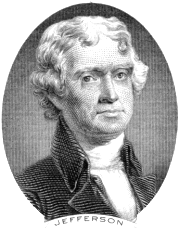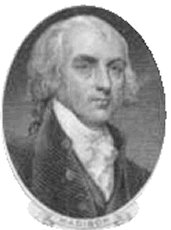Thinking Globally: America’s Rise to Dominance, With Slips Along the Way
Right from the start, Mr. Herring says, the generation of founding fathers was outward looking and consumed by diplomacy. What is more, expansionism, first beyond the original 13 colonies, then into the Caribbean and Pacific and eventually culminating in a political and economic domain spanning the world, has almost always animated American leaders.
Already at the time of the Constitutional Convention in Philadelphia, in 1787, no less than James Madison spoke of “laying the foundation of a great empire.” By 1821 John Quincy Adams was mocking the fast swelling British Empire: “I do not know what you claim nor what you do not claim.” When his British interlocutor replied sarcastically, “Perhaps, a piece of the moon,” Adams issued a blunt warning about North America: “Keep what is yours and leave the rest of the continent to us.”
Less than a decade later President Andrew Jackson had embraced gunboat diplomacy to East Asia and exploration of the South Pole, and spoke of showing the flag “to every portion of the globe, to give to civilized and savage man a just impression of the power we possess.”
Attitudes like this were steadily fed by a fast-growing population, an economy that became the envy of the world and by a creed of American exceptionalism, whose roots could already be discerned in the words of Thomas Jefferson.
Jefferson drew a sharp distinction between the “high moral purpose” of the United States and the “low motives of power and expediency that drove others.” At the time, Mr. Herring notes, one-fifth of the American population were slaves.
Less conventionally, in terms of the mainstream way history has been taught for generations, Mr. Herring paints a potent picture of the role of race as an important and frequently central motive behind American actions.
This story line begins with the annihilation of American Indians, who conducted lively foreign relations of their own, with the government in Washington, with the European powers and even with the Confederacy until its subjugation.
His story continues with the politics of black bondage, as the young nation pushed west, extending the frontier of slavery and precipitating the Civil War.
The narrative of frank racism, a word Mr. Herring employs frequently, gains momentum in a discussion of Manifest Destiny, which he says had more to do with an ideology of racial superiority than with altruism. The examples, in 19th-century dealings with continental neighbors like Haiti, Cuba and Nicaragua, are as painful as they are numerous.
A persistent target was Mexico, which lost huge chunks of its territory to American expansionism. “Americans scorned Mexicans as a mixed breed, even below free blacks and Indians, ‘an imbecile and pusillanimous race,’” Mr. Herring writes. He adds a few pages later, “The very racism that drove the United States into Mexico limited its conquests.”
Quoting Andrew Jackson Donelson, the former president’s nephew, Mr. Herring recounts, “We can no more amalgamate with her people than with negroes.” Much later, we learn, the same thinking prevented Puerto Rico from becoming a state.



2 comments:
"What Americans Still Believe" -
“Americans scorned Mexicans as a mixed breed, even below free blacks and Indians, ‘an imbecile and pusillanimous race,’” Mr. Herring writes."
Given the on-going controversy involving illegal immigration in America, it is safe to say that the vast majority of Americans still regard Mexicans as very much less than blacks and [American] Indians.
As I peruse the major (and sub-major) Internet news sites that regularly feature articles on illegal immigration from Mexico, I have never before seen such blatant racism (in the comments sections) from so-called "average" Americans.
Mexican immigrants are currently the most demonized group of people
in the U.S., much more so than Islamic militants who engage in acts of terror.
Most of these immigrants possess "more" Indian blood than most of the Indian population throughout the country - so, in a certain sense, anti-Mexican sentiment is actually a form of anti-Indian hatred.
But, since many Americans these days function from an intellect that is surpassed only by that of "Larry the Cable Guy" - it is no mystery to me why they hate Mexicans so much.
I would also wager that 99% of Americans do not know the meaning of the word "pusillanimous" as it appears in the above-quoted text.
It means, "cowardly."
A word that hardly describes anyone who would venture hundreds of miles from home, mainly on foot, encountering such an assortment of dangers along the way that are beyond the imaginations of practically all of us good citizens of the U.S. of A.
One of the major anti-immigrant voices, Pat Buchanan, barely manages to hide the racial component in his scorn.
Post a Comment